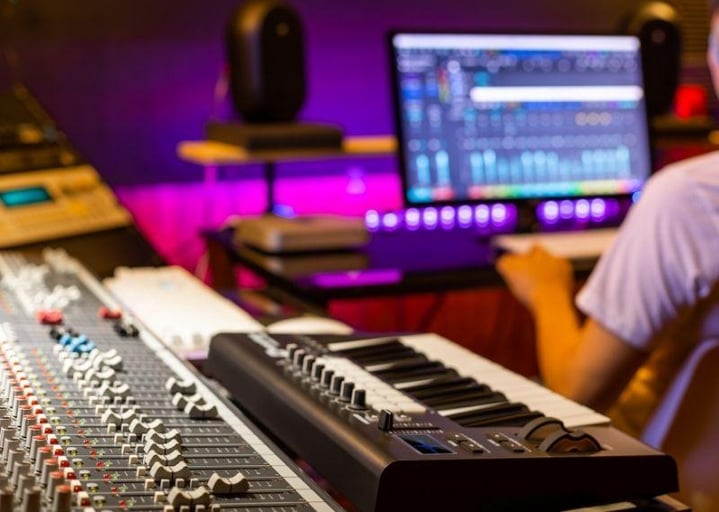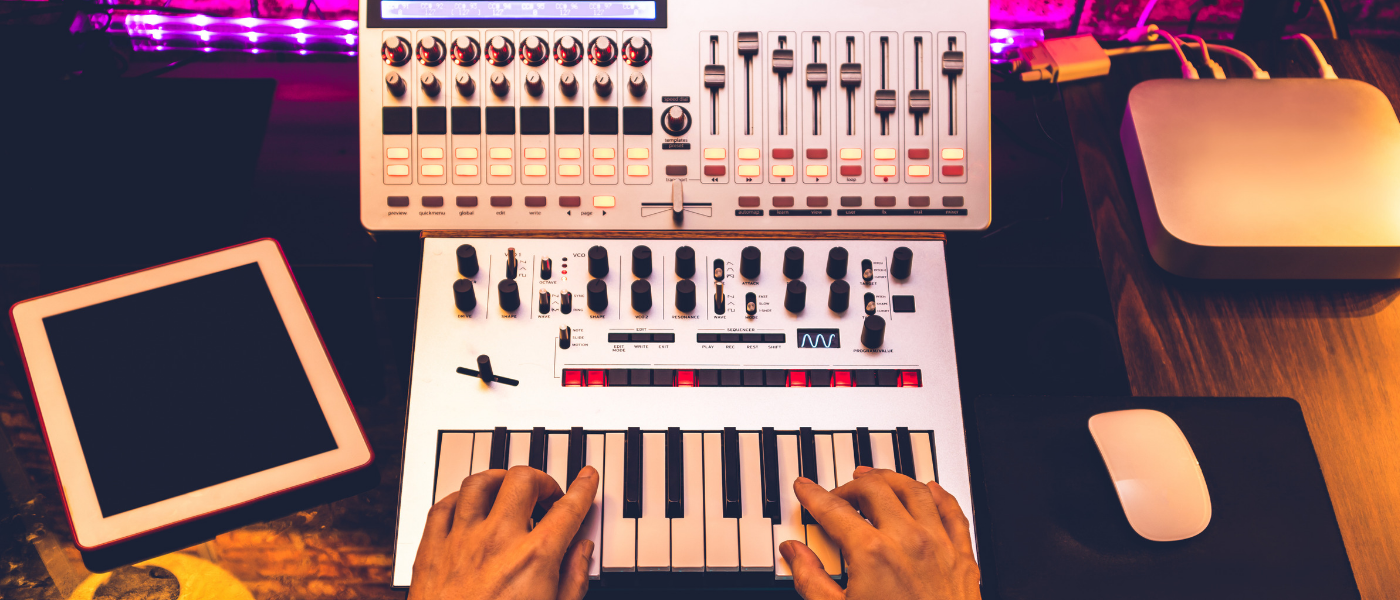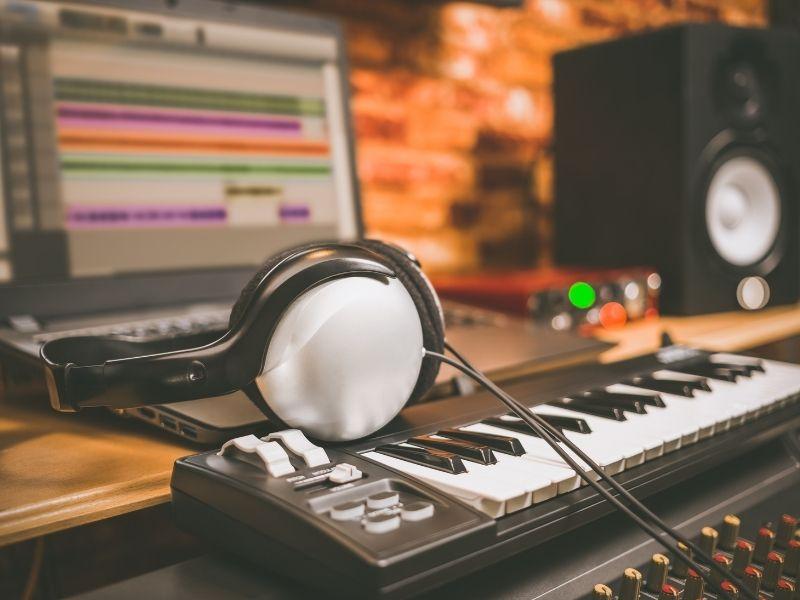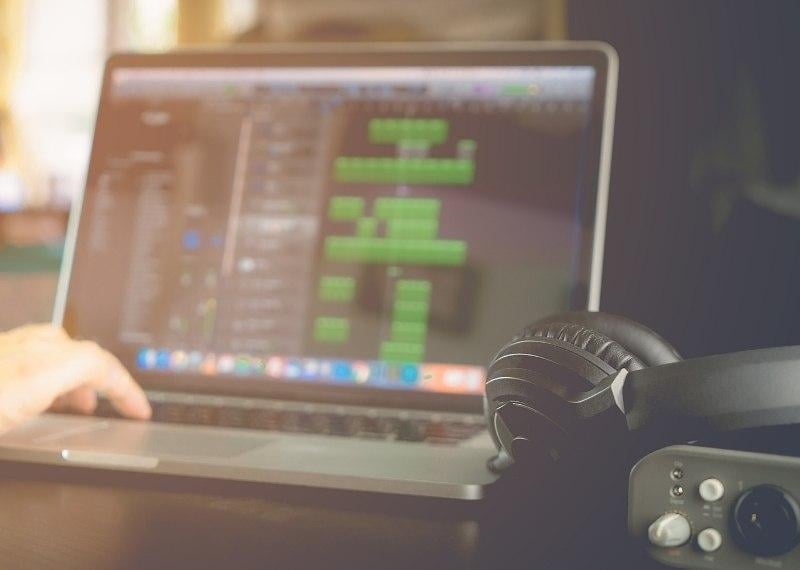Can Learning an Instrument Help with Music Production?
More and more young musicians are choosing the music production route these days.
Of course, you're always going to have musicians that love performing in the limelight, but music production offers so many creative and stylistic opportunities; plus, you can easily network and help other musicians achieve the sound they are looking for.
However, that doesn't mean that you should swing so far to the other side of the pendulum that you forgo learning an instrument. Even if music production is your end all be all.
Many successful producers still have a background in instrumentation. Even if you're not a master of the instrument, having experience playing an instrument is critical.
It helps you understand and relate to the musician you're working with and ultimately elevates your craft. Consider this, too - the music industry is incredibly competitive, so any advantage you can get over the competition will help set you apart.
Experience in instrumentation also opens up new avenues of creativity surrounding music and gives you a working knowledge of music theory and other essential concepts.
In the article below, we will discuss why music producers should have experience playing an instrument.
Table of Contents:
- Music and Music Producers
- Which Instrument is Most Important to Music Production?
- Learn a Single Voice Instrument
- Can I be a Music Producer Without Learning an Instrument?
- Separate From the Crowd
Music and Music Producers
Before we dive into this further, let's discuss music production. What exactly is music production?
On the surface, music production is the capturing and manipulation of music. Even the most organic sounding music on a record has undergone music production to a certain extent.
However, music production is much more than simply recording music. Completely new and unique elements and sounds can be added to a track with precision.
EDM music, for example, is heavily reliant on music production. There aren't many actual instruments in EDM and many of the songs are made entirely on computers.
This style is also extremely popular in pop music. Many pop songs are written on piano or acoustic guitar and then taken to the computer.
This is where music production comes in. Producers utilize a MIDI controller that allows them to surf through thousands of different sounds.
So, if you're a music producer and want to learn an instrument which one should be your priority?
Which Instrument is Most Important to Music Production?

One of the most essential instruments a producer could learn to enhance their production abilities is the piano or a keyboard.
Pianos and keyboards are the top go-to instruments to learn music theory.
Music theory knowledge is vital in music production because it helps producers understand the dynamics of music, which can give them a leg up on the competition.
A musical knowledge of harmonics and melody simplifies instrument selection, instrument pairing, and vocal mixing.
A producer with little or no understanding of music theory can try their best, but a person with a strong music theory background and knowledge has a massive advantage.
Essentially, they have a built-in blueprint on how to start creating music and how each additional piece can be integrated. It's all about expanding your "tool kit," so to speak.
Practice sessions on a piano can be a great way to learn about keys, chords, scales, tones, pitches, sheet music, and many other helpful facets of music theory.
Learning the keyboard can significantly aid your career as an electronic music producer and be the gateway to learning how to play other instruments.
Learn a Single Voice Instrument

Understanding music theory and producing ideas with the keyboard can be invaluable to a producer. But stopping there doesn't give you the most profound knowledge an instrument can provide.
That knowledge is the human aspects of music, like motion and listening. Understanding these aspects usually requires learning a single voice instrument.
What do we mean by a "single voice instrument?"
Single voice instruments only produce one voice at a time, like winds and strings. Trumpets, trombones, violins, and cellos are examples of single-voice instruments.
You cannot play overlapping rhythms with single voice instruments like you can on a piano.
They can only produce one idea at a time.
This forces you to be creative and teaches you different lessons about music. With fewer options, you'll have to come up with inventive ways to create.
Playing one rhythm at a time might seem unnecessary for many producers because electronic music tracks have a lot of overlapping layers.
Songs consist of several instruments, samples, drum patterns, effects, and other elements.
Still, learning a single voice instrument will improve your music production skills by forcing you to focus on different aspects of music other than forming the final product.
Can I be a Music Producer Without Learning an Instrument?
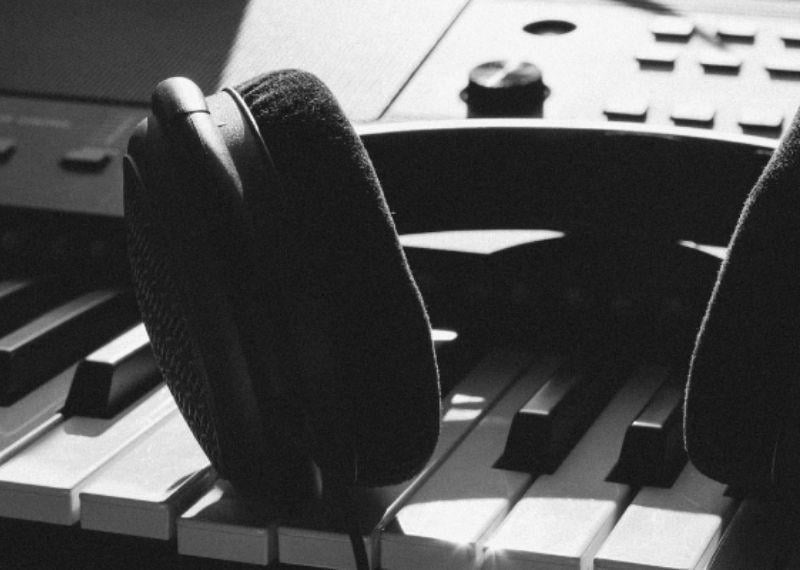
It is still possible to be a successful producer without learning an instrument.
Music production is digital now, so knowledge of an instrument isn't required for you to be considered a producer.
Digital Audio Workstations like Pro Tools have everything you need to help you become a music producer.
However, just because you can be a music producer without learning an instrument doesn't mean you should limit yourself.
In terms of opportunity and growth potential as a producer, having a solid understanding of instrumentation goes a long way.
This knowledge will ultimately change and improve the way you approach record creation.
Producers use music theory whether they realize it or not, so mastering theory, even if you don't learn an instrument, will add to your skill set and workflow inside your DAW.
Separate From the Crowd
Learning how to play an instrument and understanding music theory teaches you lessons about music beyond what you program or master in a DAW.
Want to fast-track your success and ability to pair instrumentation with your music production talents? Check out Atlanta Institute of Music and Media.
What Advantage Does a Music College Provide?
At AIMM, you'll have the opportunity to master your skills, make life-long industry connections, and network with other musicians and producers like yourself.
In fact, AIMM has the perfect program for producers that want to learn an instrument.
The Music and Technology Associate Degree combines music production techniques and education with in-depth training in one of the following instrument focuses:
- Guitar
- Bass
- Drums
- Keyboard
- Vocals
You will also develop a strong understanding of music theory along the way.
If you're passionate about developing a successful music production career, it is critical that you put yourself in the best position to attract musicians and always provide amazing results.
To take the first step toward a profitable music production career, click below.
